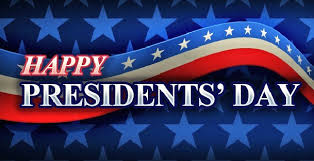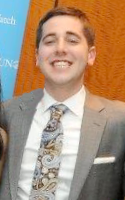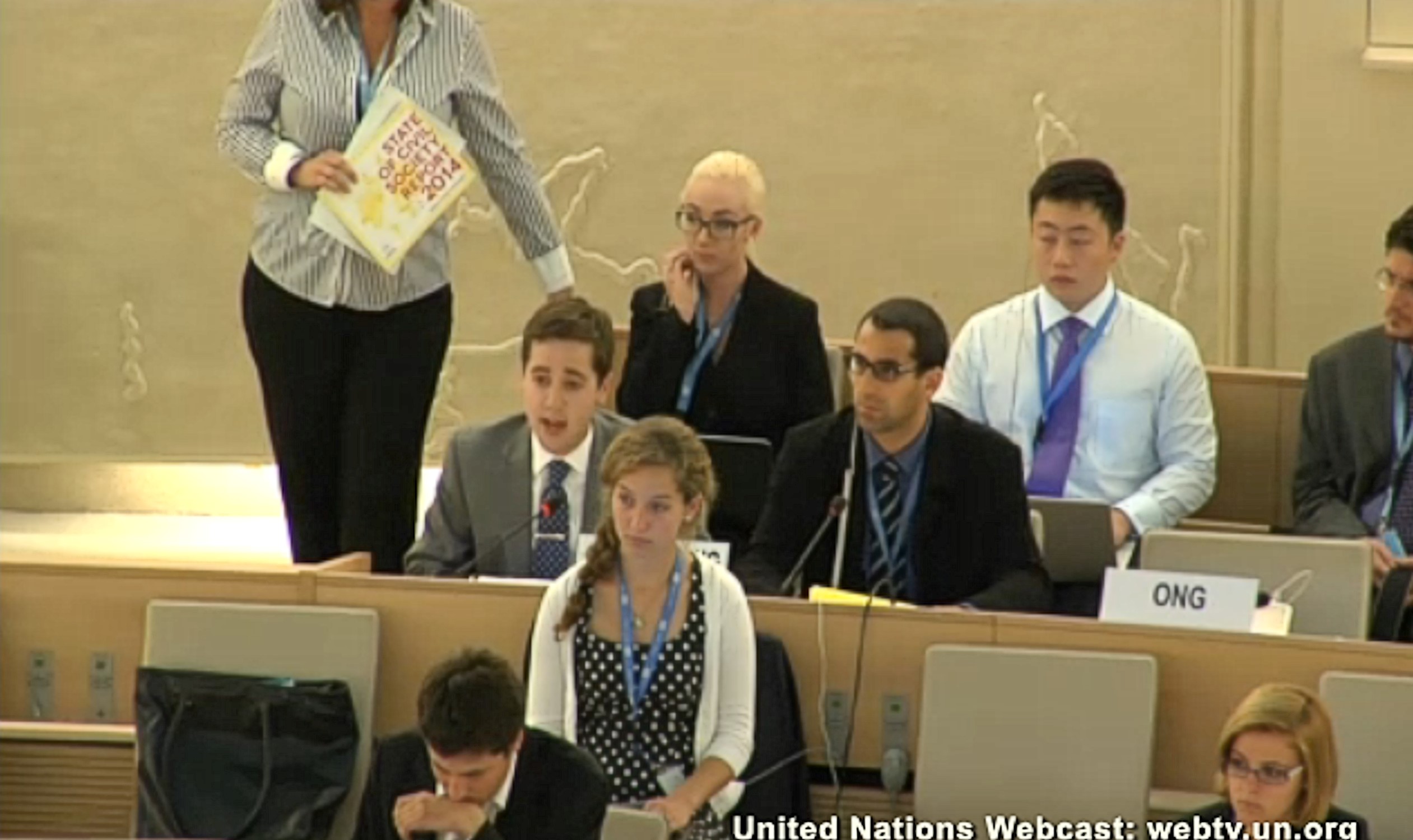By Monica Gojman, ’12
“And that’s where David and I met” I distinctly remember her telling me. She gazes through the window, a nostalgic sparkle glittering in her eyes, as she points towards the castle’s centuries-old wrought iron gate. There’s a charge in the air at Château de Touffou that is almost contagious; an energy that pulsates with a mix of meaningful tradition and creative potential. All of us, the other WPP Fellows and I, along with a range of mentors, group executives, clients and Herta’s special guests, sit around the castle’s majestic fireplace listening to the most inspiring woman I have ever met tell her story. I should mention that by David -she meant David Ogilvy, the man behind Ogilvy and Mather (and her late husband). We were all completely starstruck. I remember watching the flames crackle in tandem with my excitement as I finally let it sink in: I actually get to live here for a week!
My senior year at Penn I found myself asking: what can I do with degrees in communication, public service, marketing and psychology? Perhaps it was my destiny to sell politicians. Indeed, after completing my public policy thesis, I felt like I could conquer the world. But I had no idea where to start. As a student from Mexico City, my job search was heavily constrained by limitations placed on hiring international students- something that many of my extremely talented Quaker friends faced as well. Yet I was also waiting to find a job that would inspire the same passionate zeal I felt (and still feel) for Penn when I first strolled through campus. And that’s when I found the WPP Fellowship.
As the leading and largest marketing communications company in the world, WPP presented an offer I could hardly imagine anyone refusing: the opportunity to spend three years in a global leadership rotational programme, working across three different operating companies, industries, and even continents. The best part? Fellows get to craft their own journey, choosing out of the 3000 offices and 110 countries in which WPP operates. There were no OCR interviews, cover letters, citizenship requirements or questions about how many pencils fit inside a swimming pool. The application centered around telling a story- your own personal one – in a compelling, creative and sincere way. Oh, and there was also the small detail of standing out against more than 2000 applicants worldwide for only 8 coveted spots. But somehow – after months of essays, interviews, and a final round in London- the stars aligned. I fortuitously managed to become a WPP Fellow. And the rest is history.
One year I was in New York working as a strategist for a top global tech client watching my campaign come to life –and the next I was in London advising top-level decision-makers on the political economy of Latin America and potential growth drivers of the region. Every day of the Fellowship has brought me an incredibly diverse set of challenges and opportunities, most of the time in completely foreign settings. Penn taught me how to thrive in multidisciplinary and cross-cultural environments, and WPP has given me the chance to turn theory into practice within both.
So there I was, in the middle of my WPP Fellowship training at Ogilvy’s castle in the South of France, wondering how a job like this even exists. It wasn’t too long ago that I interned at Ogilvy and Mather as a Sophomore at Penn. Little did I know then I would have somehow landed in this grand dinning room, watching a meticulously- planned five-course meal unfold in front of me. But I didn’t even notice the food. How could I when I was sitting next to an Olympic silver-medalist on one side, and an accomplished neuroscientist on the other? And those are just two of the WPP Fellows. The privilege to be sitting among them, listening to their stories, is an opportunity I cherish every day.
Remember that electric charge we felt when walking through Locust? Or when we entered The Quad for the first time? Its exactly the same feeling on the WPP Fellowship. A perfect mixture of excitement and disbelief. Sure, the castle might make it seem like a fairy tale. But that electricity? We’ve all felt it. And it couldn’t be more real.
—
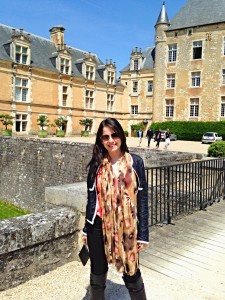 Born and raised in Mexico City, Monica Gojman graduated in May 2012 with a degree in Communication and Public Service. She won the Eisenhower Award for Outstanding Honors Thesis and was elected graduation speaker for the Annenberg School for Communication. At Penn, she served as President of the Undergraduate Board of the Annenberg School, Vice-President of the Mexican Student Association, Under-Secretary General of the International Affairs Association, Marketing Committee member of Wharton Latino, and a Spanish Tutor at the Penn Language Center. She currently works as a WPP Fellow for WPP and is spending her second rotation as an International Public Policy and Business Development Adviser in London. A lover of international affairs, languages and cultures, Monica has studied and worked across five different continents. She enjoys salsa dancing, singing, writing, and has a weakness for all-things dark chocolate.
Born and raised in Mexico City, Monica Gojman graduated in May 2012 with a degree in Communication and Public Service. She won the Eisenhower Award for Outstanding Honors Thesis and was elected graduation speaker for the Annenberg School for Communication. At Penn, she served as President of the Undergraduate Board of the Annenberg School, Vice-President of the Mexican Student Association, Under-Secretary General of the International Affairs Association, Marketing Committee member of Wharton Latino, and a Spanish Tutor at the Penn Language Center. She currently works as a WPP Fellow for WPP and is spending her second rotation as an International Public Policy and Business Development Adviser in London. A lover of international affairs, languages and cultures, Monica has studied and worked across five different continents. She enjoys salsa dancing, singing, writing, and has a weakness for all-things dark chocolate.
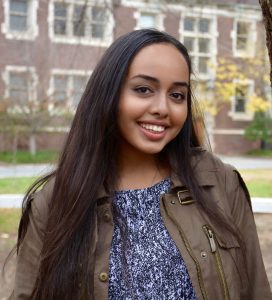 When I first walked into the office of the League of Women Voters of New York City, I was surprised by how tight knit of a community the organization seemed to be. It looked less like an office, and more like a casual convention—a home in one way or another—of powerful women committed to civic engagement and citizens’ empowerment.
When I first walked into the office of the League of Women Voters of New York City, I was surprised by how tight knit of a community the organization seemed to be. It looked less like an office, and more like a casual convention—a home in one way or another—of powerful women committed to civic engagement and citizens’ empowerment.

